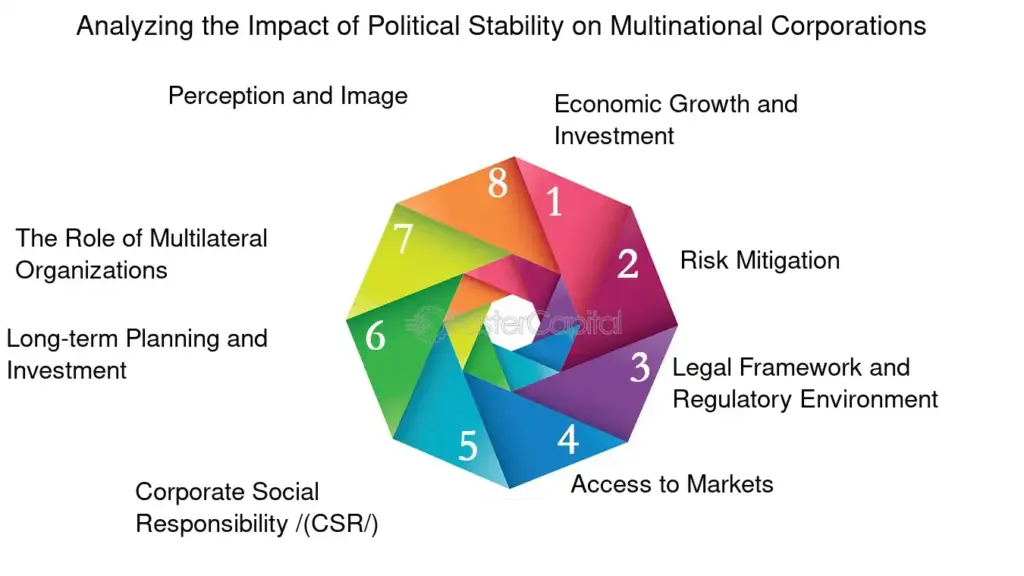
Political factors play a crucial role in shaping a country’s economic stability. Government policies, political stability, and geopolitical events directly influence markets, investor confidence, and economic performance. Here’s an in-depth analysis of how politics impacts economic stability:
1. Political Stability and Investor Confidence
- Importance: Political stability fosters a predictable environment for businesses and investors.
- Impact: When a country experiences political turmoil (e.g., coups, protests, or frequent changes in leadership), investors may pull out, causing market volatility and capital flight.
- Example: Political crises in countries like Venezuela led to hyperinflation and economic collapse, driving investors away.
2. Government Policies and Economic Regulation
- Importance: Fiscal and monetary policies directly influence economic growth, inflation, and employment.
- Impact: Pro-business policies (e.g., tax cuts, deregulation) can stimulate growth, while heavy regulations may slow down economic activities.
- Example: The U.S. Tax Cuts and Jobs Act of 2017 spurred corporate investment by lowering tax rates, boosting economic activity.
3. Trade Policies and International Relations
- Importance: Trade agreements, tariffs, and diplomatic relations impact global trade flows and domestic industries.
- Impact: Protectionist policies can lead to trade wars, affecting exports, imports, and overall economic growth.
- Example: The U.S.-China trade war resulted in tariffs that disrupted global supply chains and slowed economic growth in both countries.
4. Political Ideology and Economic Models
- Importance: Different political ideologies (e.g., socialism, capitalism) influence how resources are allocated and managed.
- Impact: Socialist policies may prioritize wealth redistribution and social welfare, while capitalist models emphasize free markets and private enterprise.
- Example: Scandinavian countries like Sweden and Norway balance socialist policies with market-driven economies, maintaining economic stability and high living standards.
5. Corruption and Governance Quality
- Importance: Corruption undermines trust in institutions and diverts public resources, impacting economic efficiency.
- Impact: Countries with high corruption often face slower economic growth, higher inequality, and lower investor confidence.
- Example: Transparency and anti-corruption measures in countries like Singapore have contributed to economic success and investor confidence.
6. Political Cycles and Economic Fluctuations
- Importance: Elections and political cycles often influence economic policies and market sentiment.
- Impact: Politicians may implement short-term measures to win elections, leading to economic imbalances later.
- Example: Pre-election spending sprees can boost short-term growth but may increase debt and inflation.
7. Geopolitical Risks and Global Stability
- Importance: Geopolitical tensions (e.g., wars, sanctions, diplomatic conflicts) disrupt global markets and trade.
- Impact: Conflicts can lead to supply chain disruptions, higher energy prices, and economic instability.
- Example: The Russia-Ukraine war has caused global energy and food price spikes, affecting economies worldwide.
8. Social Policies and Workforce Development
- Importance: Policies on education, healthcare, and labor rights affect the quality and productivity of the workforce.
- Impact: Investment in human capital leads to long-term economic growth and stability.
- Example: Germany’s emphasis on vocational training and education has supported a skilled workforce and economic resilience.
